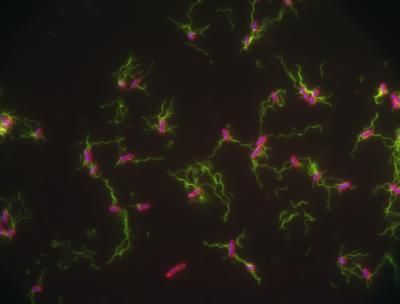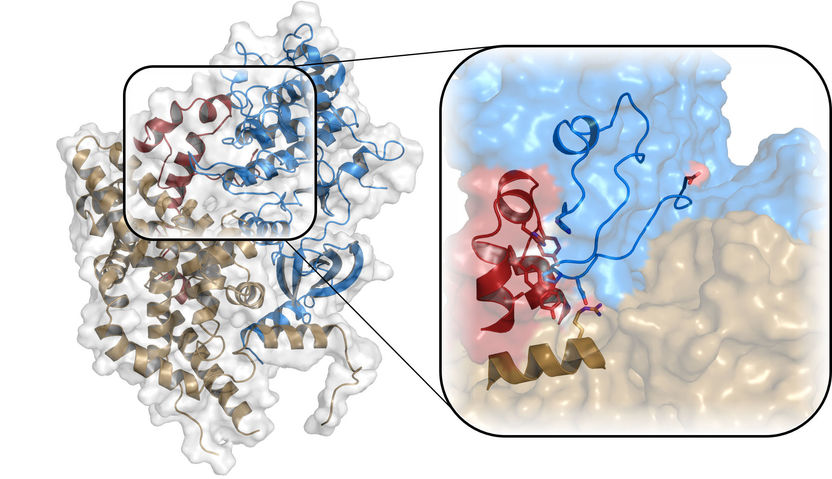Unraveling how cells respond to low oxygen
Advertisement
Gary Chiang, Ph.D., and colleagues at Burnham Institute for Medical Research (Burnham) have elucidated how the stability of the REDD1 protein is regulated. The REDD1 protein is a critical inhibitor of the mTOR signaling pathway, which controls cell growth and proliferation. The study was published in EMBO Reports .
As part of the cellular stress response, REDD1 is expressed in cells under low oxygen conditions (hypoxia). The Burnham scientists showed that the REDD1 protein rapidly undergoes degradation by the ubiquitin-proteasome system, which allowed for the recovery of mTOR signaling once oxygen levels were restored to normal.
"Cells initially shut down the most energy-costly processes, such as growth, when they're under hypoxic stress. They do this by expressing REDD1, which inhibits the mTOR pathway" said Dr. Chiang. "But when the cell needs the mTOR pathway active, REDD1 has to be eliminated first. Because the REDD1 protein turns over so rapidly, it allows the pathway to respond very dynamically to hypoxia and other environmental conditions."
Though the mTOR pathway has been the subject of significant study because of its frequent alteration in cancer, little was known about the regulation of REDD1. The team identified that a Cul4A-DDB1-ROC1-beta-TRCP E3 ligase complex was responsible for targeting REDD1 for degradation. They also identified that REDD1 degradation was also dependent upon its phosphorylation by the protein kinase GSK3beta. Because the inhibitory role of REDD1 in the mTOR pathway underscores its potential as a tumor suppressor, the team's studies suggest that increased proteolysis of REDD1 could be an additional way that mTOR signaling is upregulated in tumors.
Other news from the department science

Get the life science industry in your inbox
By submitting this form you agree that LUMITOS AG will send you the newsletter(s) selected above by email. Your data will not be passed on to third parties. Your data will be stored and processed in accordance with our data protection regulations. LUMITOS may contact you by email for the purpose of advertising or market and opinion surveys. You can revoke your consent at any time without giving reasons to LUMITOS AG, Ernst-Augustin-Str. 2, 12489 Berlin, Germany or by e-mail at revoke@lumitos.com with effect for the future. In addition, each email contains a link to unsubscribe from the corresponding newsletter.


























































